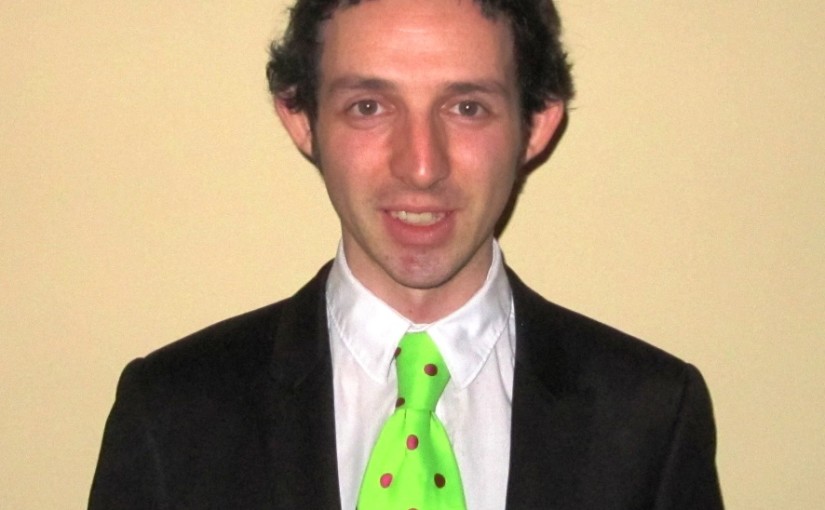With Manchester City winning the Premier League, Chelsea the Champions League and Malaga qualifying for Europe’s top competition next season, it may feel to some as though football’s soul has been permanently corrupted by the influence of ‘new money’.
Which is why events in Burgundy last night should warm the soul of football purists everywhere. Another of those teams who have reaped the rewards of a wealthy foreign owner, Paris St Germain, were beaten by a team, Montpellier, who have come from nowhere and spent next to nothing.
Theirs is a particularly intriguing title triumph. Only promoted three years ago, Montpellier’s first two seasons in Ligue 1 were solid enough, but they were built on a solid defence rather and scored few goals. Last season they finished three points clear of relegation, then sold their best defender and spent barely anything in the pre-season. In terms of the size of their budget, they were thirteenth in Ligue 1. This particular journalist predicted a battle against relegation for the southern team, while France Football were slightly more optimistic – going for a mid table finish.
Meanwhile, Paris St Germain, who had just missed out on Champions League qualification, were in the middle of the biggest spending spree of the summer in Europe – and that is including Manchester City. Javier Pastore, Jérémy Ménez and Kévin Gameiro all arrived at the Parc des Princes. Leading the championship at the start of the French winter break, the club’s Qatari owners fired Antoine Kombouaré, a decision which had more to do with their global profile than football.
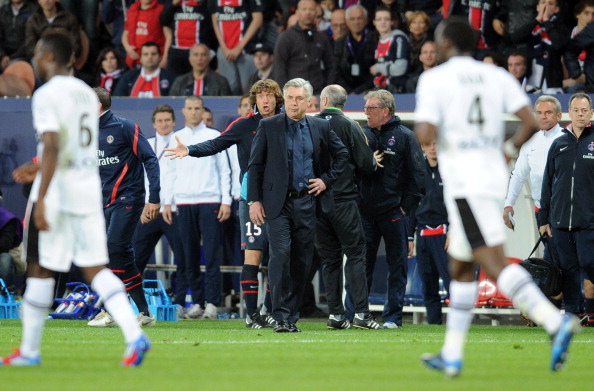
In came Carlo Ancelotti (pictured above, centre) and more signings. Thiago Motta, Alex and Maxwell arrived. But with the Italian came a tinkering with the system. The front four who had worked so well all season – Pastore, Ménez, Nene and Gameiro – became a front three with the latter being sacrificed. Meanwhile, Montpellier, the surprise package of the season, and who many had assumed would simply fall away, just got stronger. Olivier Giroud had sparkled in the first half of the season, scoring goal after goal for the southern side.
As the season went on, Montpellier just got better, with Younès Belhanda being particularly impressive. A 2-2 draw in Paris was seen as a moral victory for Montpellier, who had dominated, and it also proved that they were not to be discounted in this title race. All season long, the club has spoken as though winning the championship was a distant and far away dream they would not entertain. Then, seemingly, in the last few weeks, they found themselves in a position where the title was theirs to lose.
Finally forced to accept their status as not only title challengers, but favourites, how would Girard’s side cope? Remarkably in fact. An impressive victory away to Toulouse strengthened their lead, but then came a fracas at the end of their clash with Evian at home. A 2-2 draw saw Giroud and Belhanda fall out after the former allowed Souleymane Camara to take, and miss, an injury time penalty. The duo were meant to rotate penalty taking duties, and Belhanda was irate that Giroud had not taken his turn and instead passed the chance to someone else.
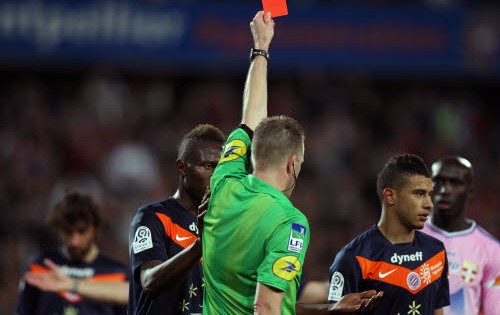
Belhanda (pictured above, right) then got himself sent off and suspended for the rest of the season. Was this Montpellier cracking? No. They won 2-0 at Stade Rennais, who had still harboured Champions League ambitions. Then they beat reigning champions Lille 1-0 at home in the penultimate game with a last minute winner, before a come from behind win at already relegated Auxerre on the final day.
It is a heartening tale of a team who have spent relatively little and who have come from nowhere. This is not a club who have been challenging anywhere near the top of French football in recent years. Their success is the equivalent of Newcastle storming past Manchester City to the finish line in the Premier League.
But they are not the only ones. In Germany, Borussia Dortmund have won their last five games with Bayern Munich, and claimed the last two Bundesliga titles. It is the first time since the 1990s that ‘FC Hollywood’ have failed to win the league in two successive seasons.
In Spain Malaga have edged out Atlético Madrid for the last Champions League spot for next season, but the flip side of their qualification are those of Borussia Mönchengladbach in Germany, and Udinese in Italy. Arsenal’s third place finish means they are in the Champions League for the fifteenth year in a row, further underlining that football’s money men do not have things all their own way.
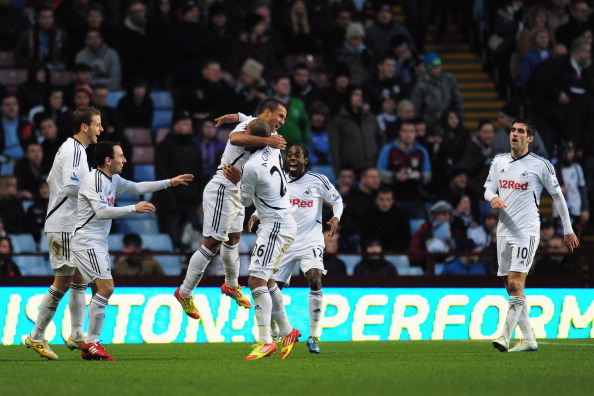
Lower down in the English Premier League, teams who have spent huge sums in recent years, such as Aston Villa and Sunderland, have been outperformed this year by managers building teams on a shoestring at Swansea (pictured above) and Norwich.
In Israel a team with a similarly impoverished budget, Hapoel Kiryat Shmona, have just won the league title, beating the likes of Hapoel Haifa, Maccabi Haifa and Maccabi Tel-Aviv, the traditional giants of the Israeli game. Last year Victoria Plzen did a similar thing in the Czech Republic, as did Oțelul Galați in Romania.
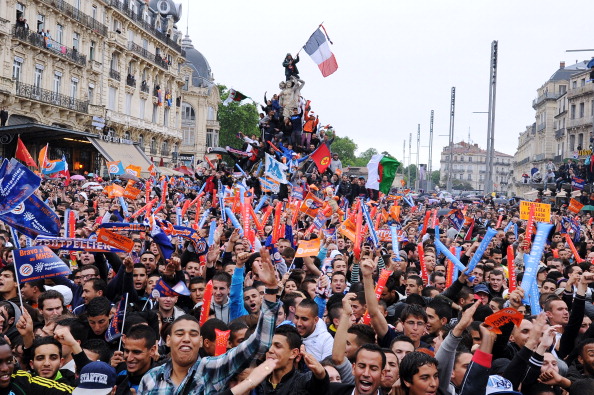
This is not to say that money does not have a significant impact on football. Manchester City certainly would not have celebrated their first title in the Premier League recently without a significant injection of Middle Eastern wealth. Yet Roberto Mancini still had to mould a team out of his expensively assembled squad, and it would be churlish to deny he has done so impressively well. But in an age where so many bemoan the death of the game at the hands of those with limitless funds, Montpellier’s most remarkable of title triumphs is a reminder that football has not quite lost its soul yet.
David Gold is a reporter for insideworldfootball

